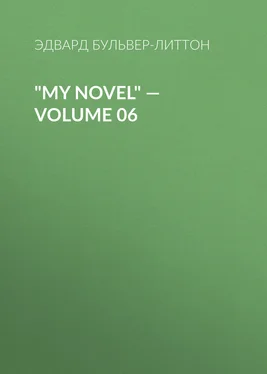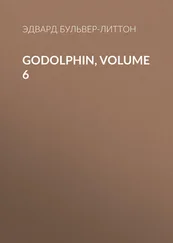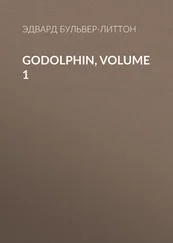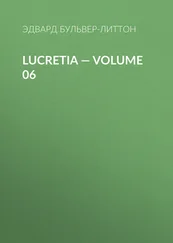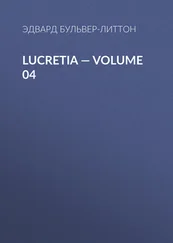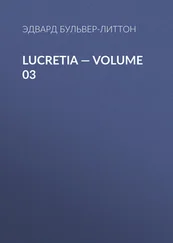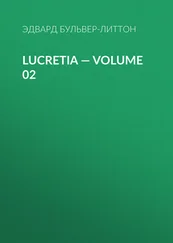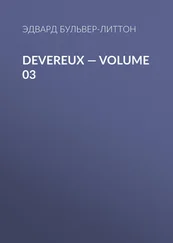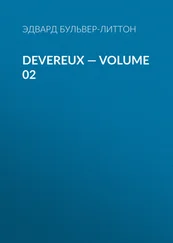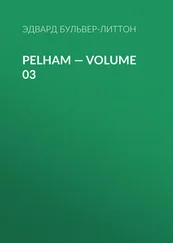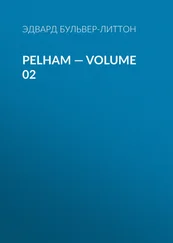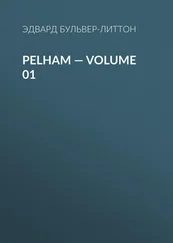Эдвард Бульвер-Литтон - My Novel — Volume 06
Здесь есть возможность читать онлайн «Эдвард Бульвер-Литтон - My Novel — Volume 06» — ознакомительный отрывок электронной книги совершенно бесплатно, а после прочтения отрывка купить полную версию. В некоторых случаях можно слушать аудио, скачать через торрент в формате fb2 и присутствует краткое содержание. Жанр: foreign_prose, literature_19, Европейская старинная литература, foreign_antique, на английском языке. Описание произведения, (предисловие) а так же отзывы посетителей доступны на портале библиотеки ЛибКат.
- Название:My Novel — Volume 06
- Автор:
- Жанр:
- Год:неизвестен
- ISBN:нет данных
- Рейтинг книги:4 / 5. Голосов: 1
-
Избранное:Добавить в избранное
- Отзывы:
-
Ваша оценка:
- 80
- 1
- 2
- 3
- 4
- 5
My Novel — Volume 06: краткое содержание, описание и аннотация
Предлагаем к чтению аннотацию, описание, краткое содержание или предисловие (зависит от того, что написал сам автор книги «My Novel — Volume 06»). Если вы не нашли необходимую информацию о книге — напишите в комментариях, мы постараемся отыскать её.
My Novel — Volume 06 — читать онлайн ознакомительный отрывок
Ниже представлен текст книги, разбитый по страницам. Система сохранения места последней прочитанной страницы, позволяет с удобством читать онлайн бесплатно книгу «My Novel — Volume 06», без необходимости каждый раз заново искать на чём Вы остановились. Поставьте закладку, и сможете в любой момент перейти на страницу, на которой закончили чтение.
Интервал:
Закладка:
Edward Bulwer-Lytton
«My Novel» — Volume 06
BOOK SIXTH
INITIAL CHAPTER
"Life," said my father, in his most dogmatical tone, "is a certain quantity in time, which may be regarded in two ways,—First, as life integral; Second, as life fractional. Life integral is that complete whole expressive of a certain value, large or small, which each man possesses in himself. Life fractional is that same whole seized upon and invaded by other people, and subdivided amongst them. They who get a large slice of it say, 'A very valuable life this!' Those who get but a small handful say, 'So, so; nothing very great!' Those who get none of it in the scramble exclaim, 'Good for nothing!'"
"I don't understand a word you are saying," growled Captain Roland.
My father surveyed his brother with compassion: "I will make it all clear, even to your understanding. When I sit down by myself in my study, having carefully locked the door on all of you, alone with my books and thoughts, I am in full possession of my integral life. I am /totus, teres, atque rotundus/,—a whole human being, equivalent in value, we will say, for the sake of illustration, to a fixed round sum, L100 for example. But when I go forth into the common apartment, each of those to whom I am of any worth whatsoever puts his finger into the bag that contains me, and takes out of me what he wants. Kitty requires me to pay a bill; Pisistratus to save him the time and trouble of looking into a score or two of books; the children to tell them stories, or play at hide-and-seek; and so on throughout the circle to which I have incautiously given myself up for plunder and subdivision. The L100 which I represented in my study is now parcelled out; I am worth L40 or L50 to Kitty, L20 to Pisistratus, and perhaps 30s. to the children. This is life fractional. And I cease to be an integral till once more returning to my study, and again closing the door on all existence but my own. Meanwhile, it is perfectly clear that to those who, whether I am in the study or whether I am in the common sitting-room, get nothing at all out of me, I am not worth a farthing. It must be wholly indifferent to a native of Kamschatka whether Austin Caxton be or be not razed out of the great account-book of human beings.
"Hence," continued my father,—"hence it follows that the more fractional a life be—that is, the greater the number of persons among whom it can be subdivided—why, the more there are to say, 'A very valuable life that!' Thus the leader of a political party, a conqueror, a king, an author, who is amusing hundreds or thousands or millions, has a greater number of persons whom his worth interests and affects than a Saint Simeon Stylites could have when he perched himself at the top of a column; although, regarded each in himself, Saint Simeon, in his grand mortification of flesh, in the idea that he thereby pleased his Divine Benefactor, might represent a larger sum of moral value per se than Bonaparte or Voltaire."
PISISTRATUS.—"Perfectly clear, sir; but I don't see what it has to do with 'My Novel.'"
MR. CAXTON.—"Everything. Your novel, if it is to be a full and comprehensive survey of the 'Quicquid agunt homines' (which it ought to be, considering the length and breadth to which I foresee, from the slow development of your story, you meditate extending and expanding it), will embrace the two views of existence,—the integral and the fractional. You have shown us the former in Leonard, when he is sitting in his mother's cottage, or resting from his work by the little fount in Riccabocca's garden. And in harmony with that view of his life, you have surrounded him with comparative integrals, only subdivided by the tender hands of their immediate families and neighbours,—your squires and parsons, your Italian exile and his Jemima. With all these, life is, more or less, the life natural, and this is always, more or less, the life integral. Then comes the life artificial, which is always, more or less, the life fractional. In the life natural, wherein we are swayed but by our own native impulses and desires, subservient only to the great silent law of Virtue (which has pervaded the universe since it swung out of chaos), a man is of worth from what he is in himself,—Newton was as worthy before the apple fell from the tree as when all Europe applauded the discoverer of the Principle of Gravity. But in the life artificial we are only of worth inasmuch as we affect others; and, relative to that life, Newton rose in value more than a million per cent when down fell the apple from which ultimately sprang up his discovery. In order to keep civilization going and spread over the world the light of human intellect, we have certain desires within us, ever swelling beyond the ease and independence which belongs to us as integrals. Cold man as Newton might be (he once took a lady's hand in his own, Kitty, and used her forefinger for his tobacco-stopper,—great philosopher!), cold as he might be, he was yet moved into giving his discoveries to the world, and that from motives very little differing in their quality from the motives that make Dr. Squills communicate articles to the 'Phrenological Journal' upon the skulls of Bushmen and wombats. For it is the property of light to travel. When a man has light in him, forth it must go. But the first passage of genius from its integral state (in which it has been reposing on its own wealth) into the fractional is usually through a hard and vulgar pathway. It leaves behind it the reveries of solitude,—that self-contemplating rest which may be called the Visionary,—and enters suddenly into the state that may be called the Positive and Actual. There it sees the operations of money on the outer life; sees all the ruder and commoner springs of action; sees ambition without nobleness, love without romance; is bustled about and ordered and trampled and cowed,—in short, it passes an apprenticeship with some Richard Avenel, and does not detect what good and what grandeur, what addition even to the true poetry of the social universe, fractional existences like Richard Avenel's bestow; for the pillars that support society are like those of the Court of the Hebrew Tabernacle,—they are of brass, it is true, but they are filleted with silver. From such intermediate state Genius is expelled and driven on its way, and would have been so in this case had Mrs. Fairfield (who is but the representative of the homely natural affections, strongest ever in true genius,—for light is warm) never crushed Mr. Avenel's moss rose on her sisterly bosom. Now, forth from this passage and defile of transition into the larger world, must Genius go on, working out its natural destiny amidst things and forms the most artificial. Passions that move and influence the world are at work around it. Often lost sight of itself, its very absence is a silent contrast to the agencies present. Merged and vanished for a while amidst the Practical World, yet we ourselves feel all the while that it is there; is at work amidst the workings around it. This practical world that effaces it rose out of some genius that has gone before; and so each man of genius, though we never come across him, as his operations proceed in places remote from our thoroughfares, is yet influencing the practical world that ignores him, for ever and ever. That is GENIUS! We can't describe it in books; we can only hint and suggest it by the accessories which we artfully heap about it. The entrance of a true Probationer into the terrible ordeal of Practical Life is like that into the miraculous cavern, by which, legend informs us, Saint Patrick converted Ireland."
BLANCHE.—"What is that legend? I never heard of it."
MR. CAXTON.—"My dear, you will find it in a thin folio at the right on entering my study, written by Thomas Messingham, and called 'Florilegium Insulae Sanctorum,' etc.
Читать дальшеИнтервал:
Закладка:
Похожие книги на «My Novel — Volume 06»
Представляем Вашему вниманию похожие книги на «My Novel — Volume 06» списком для выбора. Мы отобрали схожую по названию и смыслу литературу в надежде предоставить читателям больше вариантов отыскать новые, интересные, ещё непрочитанные произведения.
Обсуждение, отзывы о книге «My Novel — Volume 06» и просто собственные мнения читателей. Оставьте ваши комментарии, напишите, что Вы думаете о произведении, его смысле или главных героях. Укажите что конкретно понравилось, а что нет, и почему Вы так считаете.
